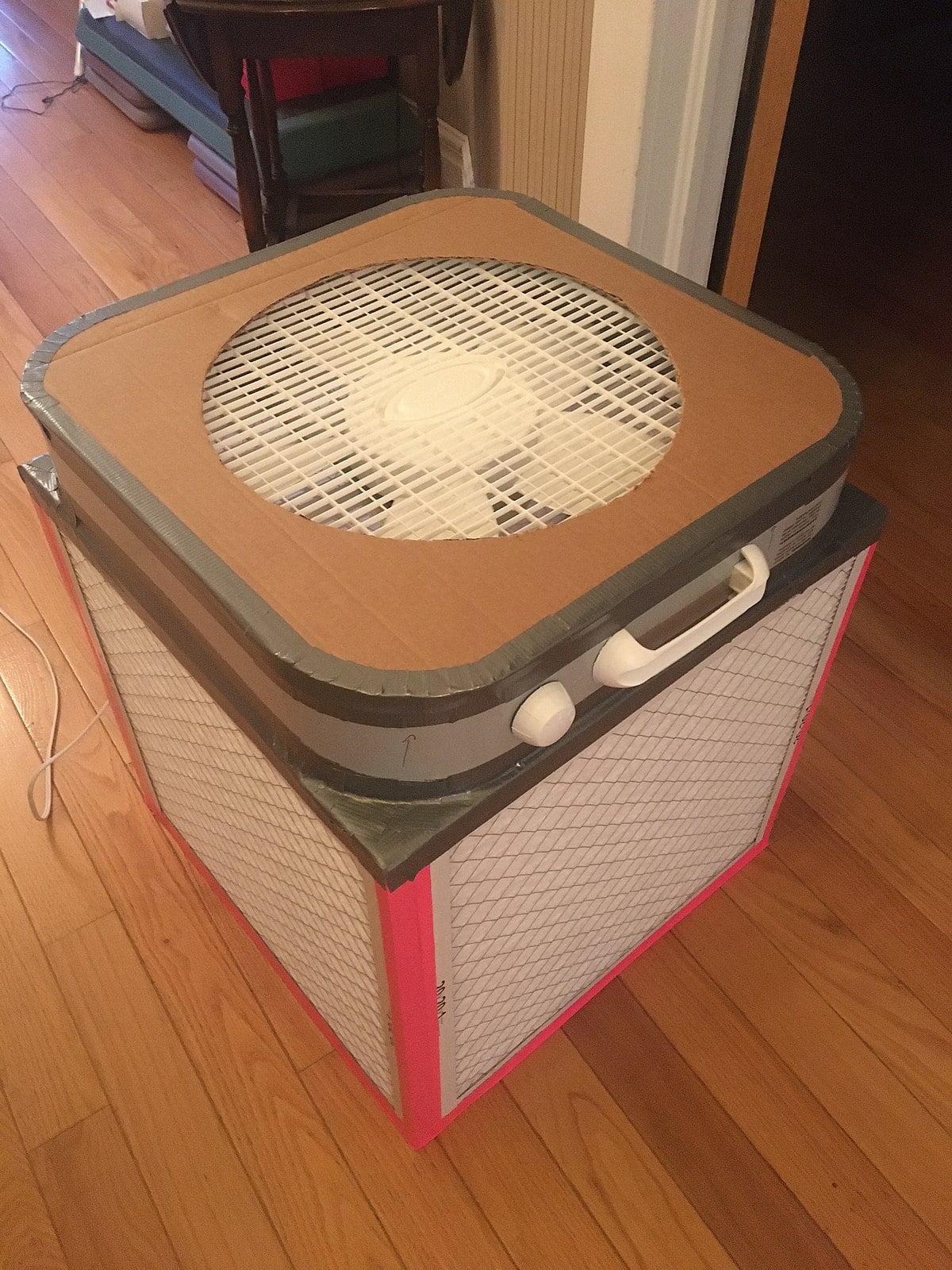Dr. David Blake, professor of neuroscience and regenerative medicine at the Medical College of Georgia, has been consistently vocal on his social media about COVID-19, its progress and recent studies and research surrounding it.
Recently, amid growing concerns of the Omicron variant, he has brought attention one means of mitigating the virus.
“We have the Omicron wave heading our way,” said Blake, stressing a potential rising infection rate expected in January. “One of the things that you can do to make your surroundings safer is to make your air cleaner.”
The Corsi-Rosenthal Box, or Cube, is a kind of air-purifier designed to filter out particles in indoor spaces. Named for environmental engineer Richard Corsi and air filtration industrialist Jim Rosenthal, the device is constructed to clean air in a space of 600 square feet, six times an hour, including particles that carry the COVID-19 virus and even wildfire smoke. And anyone can build it with items from the nearest home improvement store.
Blake has had some engineering training in HVAC, so he was familiar with aspects of air filtering. In the course of his research, he encountered proposals from Corsi and Rosenthal regarding these special filter boxes.
[adrotate banner=”19″]
“I kept seeing them grow over time,” he said. “People had actually evaluated these do-it-yourself air filters and had a pretty good air cleaning rate.”
Davis conducted a study in August and found that the homemade filtration cube could yield high clean air delivery rates, depending on the speed of the fan.
Blake took a trip to Lowe’s to find the correct filters. The cube is 20-by-20 inches, made from 20-inch MERV 13 filters, a normal box fan, a cardboard bottom and some duct tape. The cost of all the parts comes to about $100. Blake’s son assembled their cube in about 20 minutes.
“The fan blows up, you seal it off with duct tape,” explained Blake. “The intake for the fan comes through the sides of the box, which are the filters.”
Blake notes that the cube can be used in classrooms as well as social gatherings to help purify the air, complementing other COVID-mitigating measures such as the use of masks. Citing his research, he says that the cubes are most effective if they are centrally located in a room so there aren’t barriers preventing airflow; if they are used to perform three air changes an hour; and if the filters are replaced every three months.
Blake doesn’t necessarily recommend dismissing other mitigation altogether. But he does believe that the Corsi-Rosenthal Cube can prove effective in increasing safety during home gatherings, like Christmas dinner, noting that a lot of the viral air would be removed.
Blake has included his research regarding the cube in his social media posts, alongside his other COVID-19-related research, encouraging the public to check into the science themselves.
“It’s a very tried and true technology,” said Blake. “Removing particles is sort of a mechanical thing. You get the particles out of the air and they can’t affect anyone anymore.”
To read about the University of California, Davis study on the Corsi-Rosenthal Cube, visit https://energy.ucdavis.edu/wp-content/uploads/Case-Study_DIY-Portable-Air-Cleaners-083121.pdf.
Skyler Q. Andrews is a staff reporter covering Columbia County with The Augusta Press. Reach him at skyler@theaugustapress.com.









